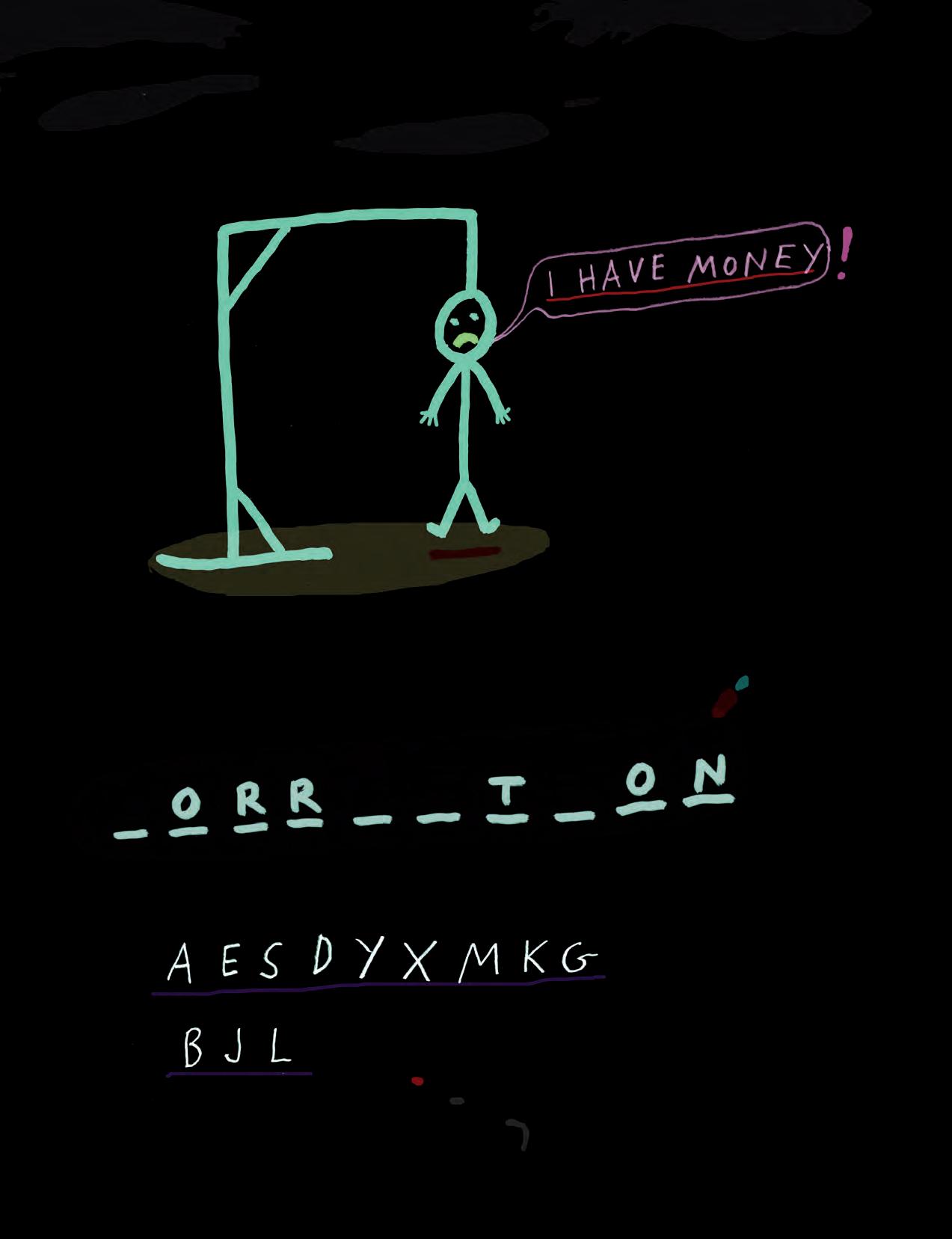
2 minute read
Country Development
from TWSM#7
Thinking out of the box Corruption and Country Development
A Vicious Circle
Advertisement
Since the mid-1990s, development organizations such as the IMF and World Bank have pushed the idea of “fighting corruption” as a critical component for economic and political development in lesser developed countries. But what is in fact the relationship between public sector corruption and poverty? If we take a look empirically at some of the most recently available data for wealth (GDP per capita, “Purchasing Power Parity” (PPP), 2008) and corruption (Transparency International’s “Corruption Perception Index” (CPI), 2009) we find that there is a remarkably strong correlation between the two measures.
For example, of the 50 most corrupt countries according to the CPI, only four have a GDP per capita above the world average – Equatorial Guinea, Venezuela, Russia and Libya. Of the 34 countries in the world with a GDP per capita over $20,000 USD, only five are even in the bottom 70th percentile of the CPI rankings (Equatorial Guinea, Saudi Arabia, Trinidad and Tobago, Greece and Italy). Thus the data shows that poorer countries are often perceived to be more corrupt, wealthier countries are perceived to be less corrupt (an obvious exception is Italy, but that is for another article).
But why is corruption negatively related with economic development? Two main, inter-related sets of mechanisms have been presented;
Nicholas Charron
Nicholas Charron is a Research Fellow at the Quality of Government Institute and an assistant professor within the department of political science at the University of Gothenburg. one, how corruption distorts markets and two, how corruption damages political institutions and governance. On the market side, corruption is an extra hurdle to new firms coming into a marketplace. Paying bribes for permits and licenses can be costly and puts a disproportionate burden on the engine of economic growth – small businesses, which are less likely to have the extra resources to pay kick-backs over the usual taxes compared with big businesses. This dynamic deters many potential firms from entering the marketplace and leads to greater opportunities for monopolies, hindering competition and distorting prices. Corruption also deters foreign investment, as firms are less likely to invest capital in corrupt environments due to the increased level of uncertainty regarding future costs of coercion and the enforcement of contracts in a court of law. On the governance side, corruption serves essentially as a tax on the general public – money which otherwise would have gone into the public treasury to be used for investments in schools, infrastructure and health care for example instead goes into the pocket of a corrupt bureaucrat or politician. With resources being syphoned off by bribery, there is less investment in human capital, leading to greater socio-economic inequalities in a society. This in turn creates less trust in public institutions and results in less participation in any sort of political process, which leads to less accountability of leaders. All of these factors contribute to what is called a “vicious cycle”– which results in less economic development and overall poverty.•










